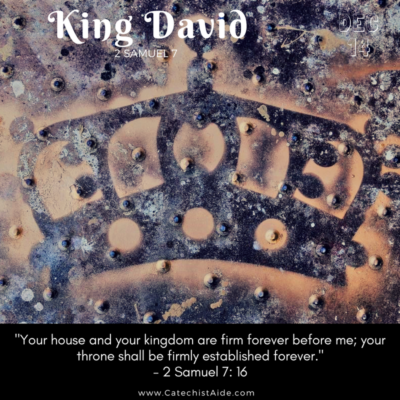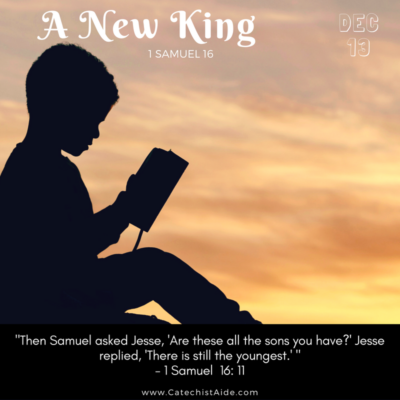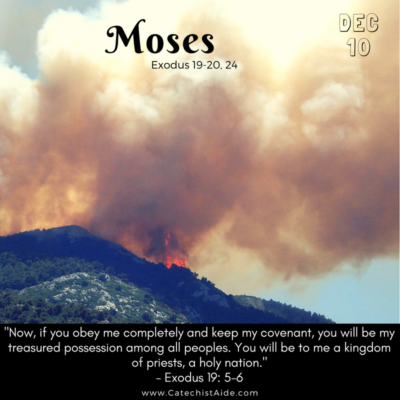December 15: Elijah
Traditional Ornament: Fire
Reading: 1 Kings 18
“The Lord’s fire came down and devoured the burnt offering, wood, stones and dust and lapped up the water in the trench.” (1 Kings 18:38)
Elijah is one of the best known of the prophets of the Old Testament. The Catechism of the Catholic Church tells us that the mission of the prophets was to give the people “education in faith and conversion of heart.” (CCC 2581) In today’s reading, Elijah provides both in dramatic fashion.
Under the rule of King Ahab, the Israelites fell into worshipping pagan gods alongside the God of Israel. At a time of great famine and severe drought, God sent Elijah to speak with King Ahab. Elijah set up a challenge for Ahab. He tells Ahab to assemble the prophets of Baal, the pagan god whom the people believed would bring rain to the fields. The prophets, which numbered 450, were to prepare an offering, a young bull, to Baal. Elijah instructed them to choose one of the bulls, “cut it into pieces, and place it on the wood, but start no fire.” (1 Kings 18: 23) Elijah would do the same with the other bull. Then, “you shall call upon the name of your gods, and I will call upon the name of the Lord. The God who answers with fire is God.” (1 Kings 18: 24)
The prophets of Baal called out from morning til noon, with no answer. Elijah prodded them to “call louder” but to no avail. Then Elijah told the people to draw near. He dug a trench around the altar and poured water over the offering and the wood until the water overflowed and filled the trench. Then he called out to the Lord, the God of Israel, “Answer me, Lord! Answer me that this people may know that you, Lord, are God and that you have turned their hearts back to you. The Lord’s fire came down and devoured the burnt offering, wood, stones and dust and lapped up the water in the trench. Seeing this, all the people fell prostrate and said, ‘The Lord is God!'” (1 Kings 18″ 37-39)
In the footnote for this story, we read that “this is a struggle between the Lord and Baal for the loyalties of the people of Israel.” This Advent we should ask ourselves, “where do my loyalties lie? Where do I put my faith and trust?”
© 2017 Catechist’s Aide





